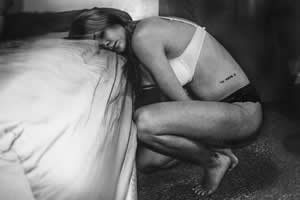How do Histamines Affect Interstitial Cystitis (Painful Bladder Syndrome)?
Newly published research by Grundy et al. (2019) shows a more direct connection.
In this study published in the February 2021 issue of The American Journal of Physiology: Renal Physiology, Grundy et al. show correlation that histamines in the body lead to changes in the sensory nerves of the bladder, particularly hypersensitivity during bladder distension, or when the bladder is filling or full.
The study determined that certain sensory nerves in the bladder can become more sensitive when histamines are present. This activation occurs in the bladder membrane, the detrusor muscles, as well as the afferent nerves of the bladder.
The study also suggests that histamines can increase the activation of certain sensory nerve cell bodies in the central nervous system, which may affect the sensation of fullness of those with IC/painful bladder syndrome.
In a previous study by Shan et al. (2019) also showed the important role of histamines in IC/BPS. In that study, bladder tissues were collected from 69 patients with painful bladder syndrome and 10 control female patients. The study found that 4 histamine receptors were more reactive in the patients with painful bladder syndrome.
These findings will hopefully help guide treatment for this dysfunction which greatly affects quality of life for many of our clients.
What is Painful Bladder Syndrome / Interstitial Cystitis?
Interstitial Cystitis is a complex bladder dysfunction characterized by the following symptoms:
- More than 6 months of urinary bladder pain or discomfort
- Accompanied by urinary symptom such as:
- Persistent urge to void
- Urinary urge with pressure
- Burning and aching pain
- Increased frequency of urination (more than 8x daily)
- IC can contribute to chronic pelvic pain and poor quality of life, and may have associated symmptoms like:
- Low back pain
- Pain during sex or pain after sex
Musculoskeletal Dysfunction and IC Symptoms
Recent research supports that musculoskeletal dysfunction, specifically in the pelvic floor, can refer symptoms to the bladder and urethra. A full intake examination with a trained pelvic floor physical therapist can help determine if this is the case for you.
Contact us with any questions you may have about your Painful Bladder Syndrome or Interstitial Cystitis diagnosis. We have a number of treatment options available!
** The American Urological Association has recently (2022) published updated guidelines to the treatment of IC and BPS. These updates are highlighted and discussed in our blog post: Updates to Interstitial Cystitis / Bladder Pain Syndrome Treatment Guidelines. **
Resources
Shan H, Zhang EW, Zhang P, et al. Differential expression of histamine receptors in the bladder wall tissues of patients with bladder pain syndrome/interstitial cystitis - significance in the responsiveness to antihistamine treatment and disease symptoms. BMC Urol. 2019;19(1):115. Published 2019 Nov 12. doi:10.1186/s12894-019-0548-3
Jones BM, Tykocki NR. New direct evidence that histamine augments bladder sensory outflow during filling is nothing to sneeze at. Am J Physiol Renal Physiol. 2020 Feb 1;318(2):F455-F456. doi: 10.1152/ajprenal.00581.2019. Epub 2020 Jan 6. PMID: 31904288; PMCID: PMC7052655.
Grundy, L., Caldwell, A., Garcia Caraballo, S., Erickson, A., Schober, G., Castro, J., … Brierley, S. M. (2019). Histamine induces peripheral and central hypersensitivity to bladder distension via the histamine H1 receptor and TRPV1. American Journal of Physiology-Renal Physiology. doi:10.1152/ajprenal.00435.2019

